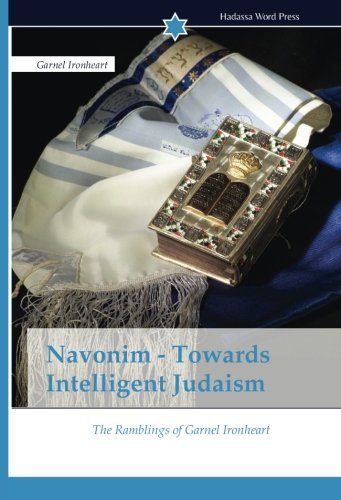R. Joshua b. Levi further said: It is the duty of a man to read the Megillah in the evening and to
repeat it in the day, as it is written, O my God, I cry in the daytime, but thou answerest not, and in
the night season and am not silent. The students took this to mean that the [Megillah] should be
read at night, and the Mishnah relating to it should be learnt in the morning. R. Jeremiah. however,
said to them: It has been explained to me by R. Hiyya b. Abba [that the word ‘repeat’ here has the
same meaning] as when, for instance, men say, I will go through this section and repeat it. It has also
been stated: R. Helbo said in the name of ‘Ulla of Biri: It is a man's duty to recite the Megillah at
night and to repeat it the next day, as it says, To the end that my glory may sing praise to thee [by
day]. and not be silent [by night]. O Lord, my God, I will give thanks to thee for ever.
One of the best episodes in the history of Star Trek is called Mirror, Mirror. In the episode a transport accident sends Captain Kirk, Dr. McCoy, Scotty and Uhura into a parallel universe, one in which the Federation is a savage, dictatorial empire, the opposite of the peace-loving federation that they know.
In an essay on Purim, the Rav quotes the Gemara above and raises the following question: Rabbi Chiya bar Abba quotes a positive verse, implying that the theme of the Megillah reading is one of calling out in praise to God for the miracle of Purim. This would seem to contradict Rabbi Yehoshua ben Levi who quotes a negative verse that implies that the theme of the Megillah is calling out in despair for God's help. This implies a contradiction in what should be the dominant theme of the day - despair vs praise.
He further asks what the Sages means when they described Yom HaKippurim as Yom K'Purim. It would seem that the two are completely opposite since one day is dedicated to fasting and trepidation while the other is spent celebrating and feasting.
His answer is that both Purim and Yom Kippur are two day holidays and it is those two days that we see the similarities between the two.
First there is Purim which is preceded by Taanis Ester. Putting Taanis Ester before Purim doesn't seem to make sense. The fast that Ester declared in the Megillah occured over Pesach and lasted 3 days. Further, the Megillah makes no mention that the Jews of Persia fasted on the day before Purim in anticipation of the fighting that would occur the next day. In fact, the 13th of Adar was the day the fighting occured. Why make it a fast day for the future?
The Rav answers that this is how the two themes of Purim are reconciled. There is an aspect of despair and calling out to God in our helplessness to the holiday and this is seen through the commemorating of Taanis Ester. Through fasting and prayer we are to relate to the despair that our ancestors felt as the dominant superpower of the day prepared to wipe them out with no hope of human rescue anywhere on the horizon. Then we switch to rejoicing and praise of God the next day as we recognize how He maneuvered history to save us. The Megillah reading at night which occurs when we're fasting allows us to read with the aspect of Taanis Ester while the reading in the morning is done with the aspect of Purim.
This dual aspect also applies to Purim except in reverse. Yom Kippur is the most serious day of the Jewish year but the gemara in Taanis also describes it as the happiest. Like Purim these two descriptions seem to be contradictory. On the 9th of Tishrei we are bidden to eat and drink as much as possible and if we do so we care credited with having fasted for two days. But according to the Rav's explanation, this becomes clear. The inyan of Purim is the Megillah reading while the inyan of Yom Kippur is the inui. We are bidden to engage both aspects, one through eating and drinking and the other through fasting.
Another interesting thing to consider is the statement by the Sages that in the future all the holidays will be abolished except for Purim. This presumably includes Yom Kippur! However, seen this way Yom Kippur's message becomes part of the Taanis Ester portion of Purim and therefore will endure.
This is therefore why the Sages could state that Yom Kippur is Yom K'Purim. Both holidays share the dual aspect of celebration and trepidation and therefore mirror each other perfectly.

1 comment:
zzzzzzzzzzzzzzzzzzzzzzzzzzzzzzzzz old news every yeshiva gives this vort even I remember it although for high school I went to the esteemed yeshiva called none of your damned business. XD
Post a Comment